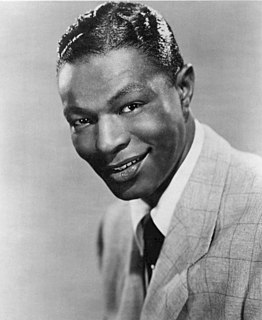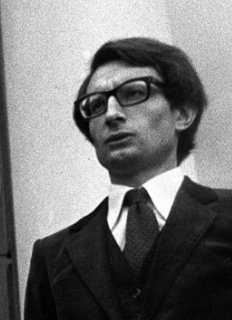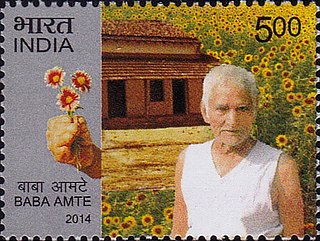A Quote by Calvin Coolidge
A colored man is precisely as much entitled to submit his candidacy in a party primary, as is any other citizen. The decision must be made by the constituents to whom he offers himself, and by nobody else.
Related Quotes
How much reverence has a noble man for his enemies!--and such reverence is a bridge to love.--For he desires his enemy for himself, as his mark of distinction; he can endure no other enemy than one in whom there is nothing to despise and very much to honor! In contrast to this, picture "the enemy" as the man of ressentiment conceives him--and here precisely is his deed, his creation: he has conceived "the evil enemy," "the Evil One," and this in fact is his basic concept, from which he then evolves, as an afterthought and pendant, a "good one"--himself!
Where no man thinks himself under any obligation to submit to another, and, instead of co-operating in one great scheme, every one hastens through by-paths to private profit, no great change can suddenly be made; nor is superior knowledge of much effect, where every man resolves to use his own eyes and his own judgment, and every one applauds his own dexterity and diligence, in proportion as he becomes rich sooner than his neighbour.
He who lets the world, or his own portion of it, choose his plan of life for him, has no need of any other faculty than the ape-like one of imitation. He who chooses his plan for himself, employs all his faculties. He must use observation to see, reasoning and judgment to foresee, activity to gather materials for decision, discrimination to decide, and when he has decided, firmness and self-control to hold to his deliberate decision.
One of man's important mistakes, one which must be remembered, is his illusion in regard to his I. Man such as we know him, the 'man-machine,' the man who cannot 'do,' and with whom and through whom everything 'happens,' cannot have a permanent and single I. His I changes as quickly as his thoughts, feelings and moods, and he makes a profound mistake in considering himself always one and the same person; in reality he is always a different person, not the one he was a moment ago.
A beginning must be made somewhere and corner by corner, department by department, space by space, all will be known and conquered. In the end, all must be explored, and whether one begins in the east or the west cannot matter much. The big concern is the extent to which a man offers himself, mind and body, to his worthwhile work. Upon that will growth depend.
We are citizens of an age, as well as of a State; and if it is held to be unseemly, or even inadmissible, for a man to cut himself off from the customs and manners of the circle in which he lives, why should it be less of a duty, in the choice of his activity, to submit his decision to the needs and the taste of his century?
Whenever any one informs us that he has found a man who knows all the arts, and all things else that anybody knows, and every single thing with a higher degree of accuracy than any other man - whoever tells us this, I think that we can only imagine him to be a simple creature who is likely to have been deceived by some wizard or actor whom he met, and whom he thought all-knowing, because he himself was unable to analyse the nature of knowledge and ignorance and imitation.
Indeed, theological discourse offers its strange jubilation only to the strict extent that it permits and, dangerously, demands of it wokman that he speak beyond his means, precisely because he does not speak of himself. Hence the danger of a speech that, in a sense, speaks against the one who lends himself to it. One must obtain forgiveness for every essay in theology. In all senses.
The man who lies to himself can be more easily offended than anyone else. You know it is sometimes very pleasant to take offense, isn't it? A man may know that nobody has insulted him, but that he has invented the insult for himself, has lied and exaggerated to make it picturesque, has caught at a word and made a mountain out of a molehill--he knows that himself, yet he will be the first to take offense, and will revel in his resentment till he feels great pleasure in it.

































